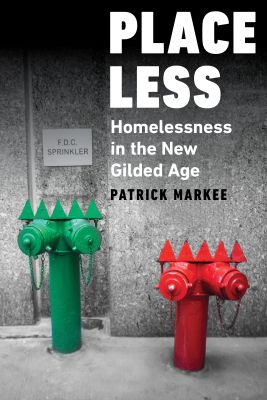Millions of people are affected by homelessness, but media pundits and politicians see homelessness as a social work problem, or a matter of personal pathology, or some peculiar subspecies of urban poverty. Informed by the author's own front-line experiences from more than two decades working as an advocate for homeless people in New York City and his work with housing activists across the country, Placeless: Homelessness in the New Gilded Age presents an alternative and innovative, wide-angle view of homelessness and displacement in New York and elsewhere. A tour of the geography of homelessness in New York City, where some 100,000 people a night sleep in the city's shelter system, Markee visits certain city landmarks where homeless New Yorkers struggle to survive. Blending historical analysis, urban theory, and the latest policy research, he considers homelessness in America as a tragic yet inevitable consequence of economic shifts inaugurated in the Reagan era, worsening inequality and housing affordability, systemic racism, and neoliberal government policies. At a moment where tabloids and politicians use homelessness as an excuse to whip up fear, Placeless is a powerful and moving account of a social problem whose solution is not unfeasible, it is in fact in the realm of the possible.

